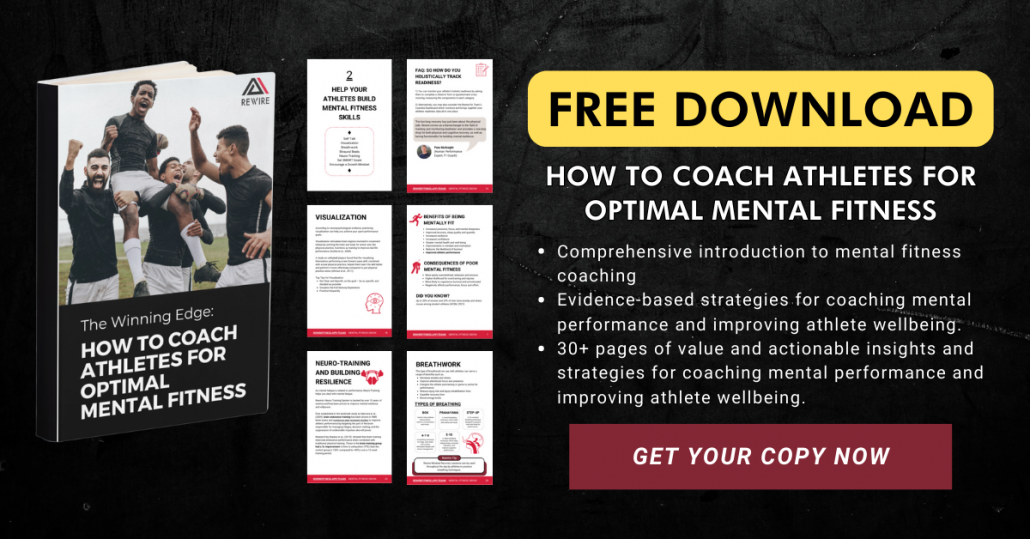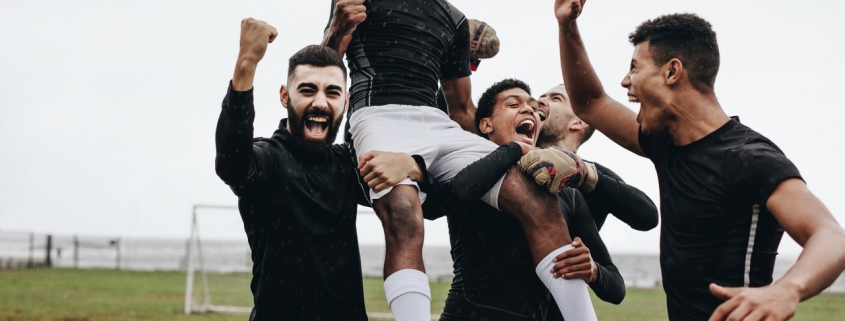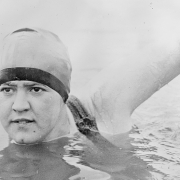6 Ways to Inspire Your Sports Team as a Coach
Here’s how to motivate and inspire your athletes for training and competition.
No two coaches or coaching styles are the same — but we’re sure all coaches can agree on one thing: the need to inspire and motivate their athletes.
Players who are excited about training, ready for competition, and willing to give it their all are all you can ask for as a coach.
But keeping your athletes interested, motivated, and inspired can prove challenging — it’s no easy feat.
With a gentle nudge in the right direction and a couple of changes to your coaching style, however, you can provide your athletes with the tools and inspiration they need to perform at their best.
In this article, we’ll highlight six powerful ways to inspire your sports team as a coach, from SMART goal-setting to team-building activities.
Set goals that your team believes in
All teams need something to work for, a reason to train, compete, and meet twice a week — or however often you train.
Whether your goal is to win the league, strive for a county championship, or qualify for an event, goals are important.
But whatever it is you’re aiming for, you need to get your athletes on board. It’s not enough for you, the coach, to be the only one on board with your goals — they need to be a collective effort.
Ask your athletes what they want to achieve and work on setting goals together.
You can use the SMART goal-setting principles to obtain better results.
- Specific — what are you striving to achieve?
- Measurable — how are you going to track your progress?
- Achievable — be very realistic to prevent disappointment.
- Relevant — is the goal relevant to the players or just the coach?
- Timely — set a realistic time frame to remain accountable.
Create the best possible environment for your athletes
Creating the best environment for your athletes goes beyond plastering posters of Michael Jordan, Muhammad Ali, Roger Federer, and Babe Ruth on the locker room walls. Although, a little inspiration here and there can go a long way.
While dribs and drabs of inspiration are recommended, you should also prioritise fun in training. We’re not saying you can never compete and test your athletes, but the more exciting training is, the more invested your athletes will become.
For example, instead of diving head-first into an interval session in the pool, you could warm up with a game of water polo.
Keep things fun, fresh, and interesting, and your athletes will keep coming back and putting in the hard work. It’s all about finding a balance between hard work, fun, and rewards.
Even if they’re not looking forward to a gruelling set of intervals in the water, the occasional exciting warmup, the friends they make, and your coaching style will work wonders when they need it most.
Related: What Qualities Make A Great Sports Coach?
Be available
It’s a simple piece of advice, but it’s one that can and will make all the difference.
After a training session or game, hang around for a while — be available if your athletes want to chat.
Even if it’s not about the sport, it could be about school, work, home life, relationships, or anything else — sometimes, it’s nice to have someone to talk to.
This will also help you build a great relationship — your athletes will be more likely to talk to you when things get tough, if they have a niggle or a pain, or if they have any doubts about their training.
The better your relationship with your athletes, typically, the better the performance of the team.
Post-training social activities can also be a good way for athletes to get to know each other better.
Treat all players equally
While it’s natural that some coaches will have one “star athlete,” problems begin to occur when the coach prioritises that athlete above all others, sometimes without even noticing it.
And while that makes sense — if you want to make all players feel welcome, inspired, motivated, and part of the team, then you should treat all players equally.
It doesn’t mean you can’t provide more focus on the next Michael Jordan, but it does mean you should be available to all your athletes.
Remember, you’re coaching a team of athletes, not one athlete.
Provide positive affirmations to your athletes
“Good job,” “keep it up,” and “you’re doing great” — these are all examples of positive affirmations you can give your athletes.
Feedback can go a long way, both given in training and competition.
Positive affirmations tell your athletes that they see you and recognise the hard work they are putting in. As an athlete, that provides accountability — you don’t want to let the coach down, especially now they’ve acknowledged you and the work you’re putting in.
You don’t need to overdo it, either. In fact, it’s best to provide positive affirmations and words of encouragement infrequently — once or twice a training session, for example. Ideally, when the athlete needs them most — on the last set of intervals, when they’re flailing around in the pool, or when they’re struggling to shoot a hoop.
Introduce team-building activities
If you want to see some real team-building, sit down and watch Top Gun Maverick. While you don’t need to introduce dogfight football to your team, you can introduce similar team-building activities to build trust, respect, communication, and friendships within your team.
If you coach a team sport, such as football, basketball, or ice hockey, for example, then these team-building activities are even more important.
But even if you coach an individual sport, team-building activities can help build morale in training.
Coaches can use Rewire to improve team performance
To be a great coach, you need to be many things. But if you can inspire your athletes, then you’ll see some great results.
Aside from inspiring your athletes, understanding their physical and cognitive domains can help improve performance.
Rewire for Teams provides coaches with a toolkit for better coaching recommendations, providing insights into athlete readiness scores and other holistic viewpoints for improved mindset, better stress management, and other tools to help prepare athletes for training and competition.
Book a free consultation today to learn more about how Rewire can help your team.












